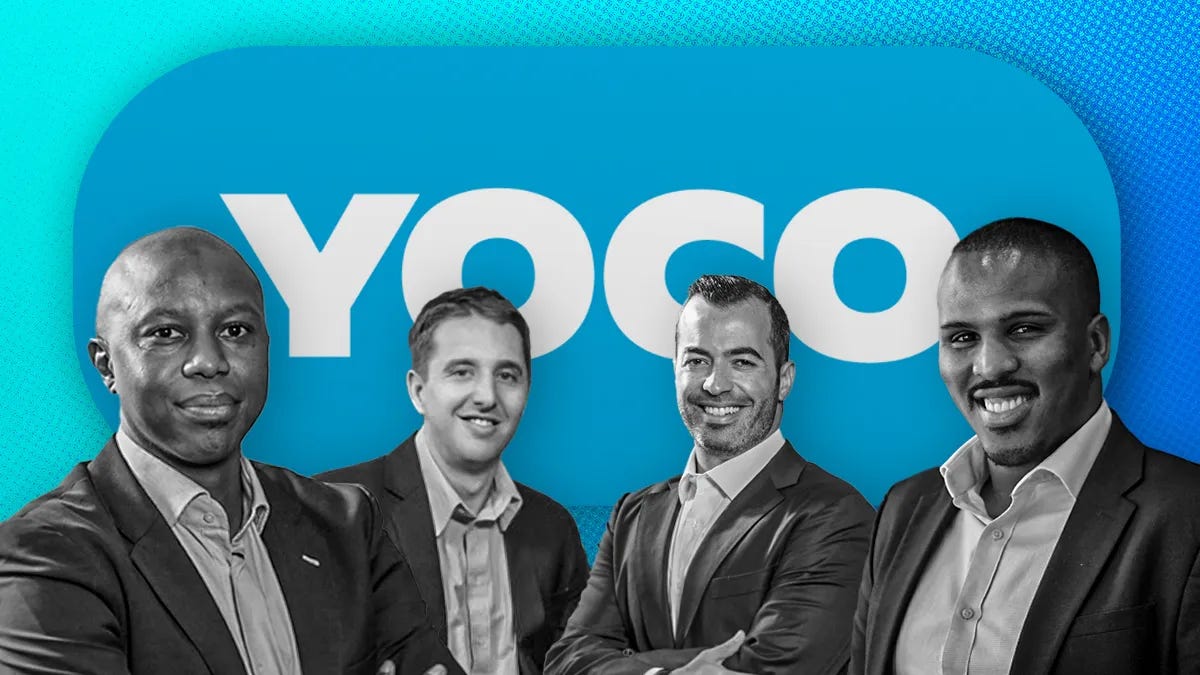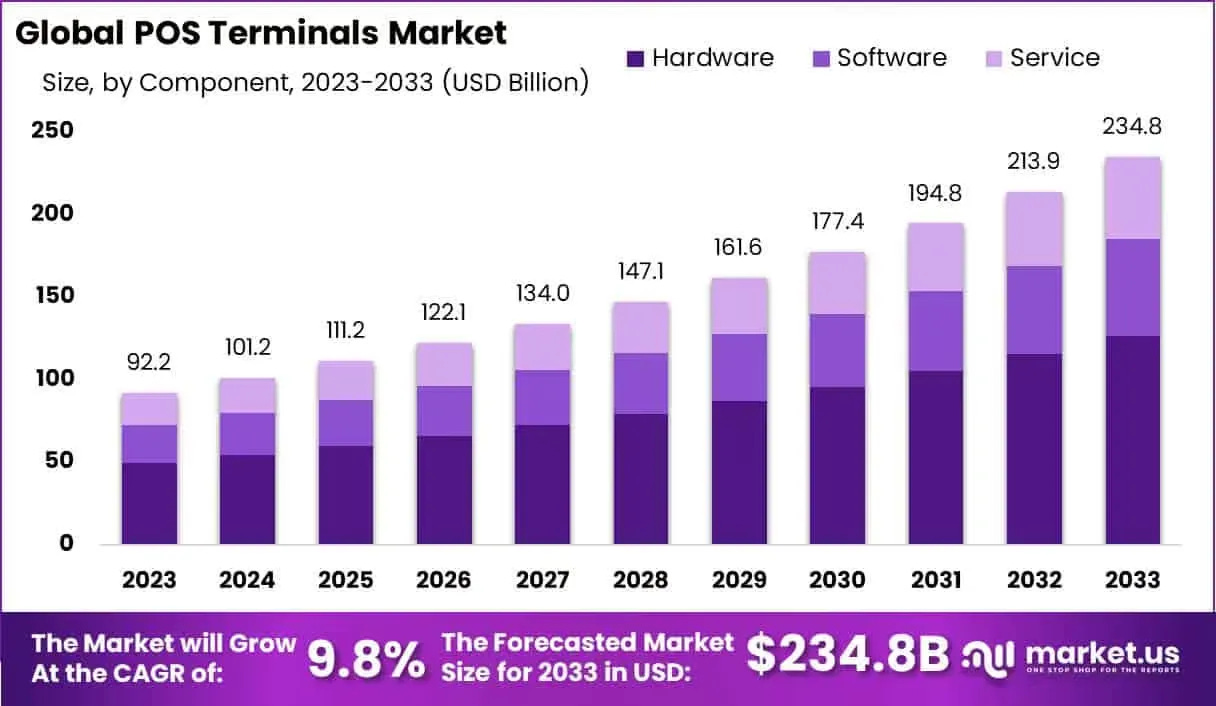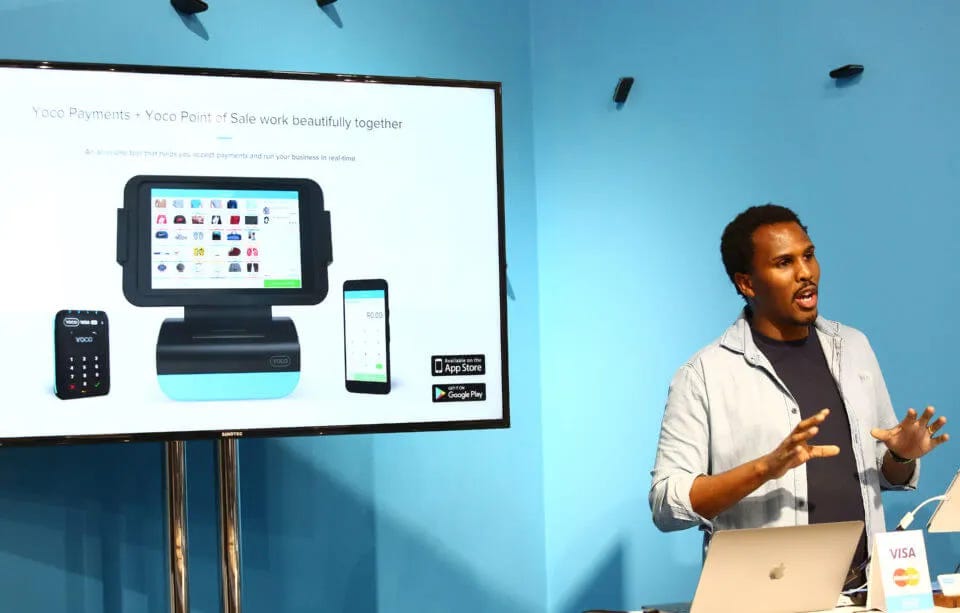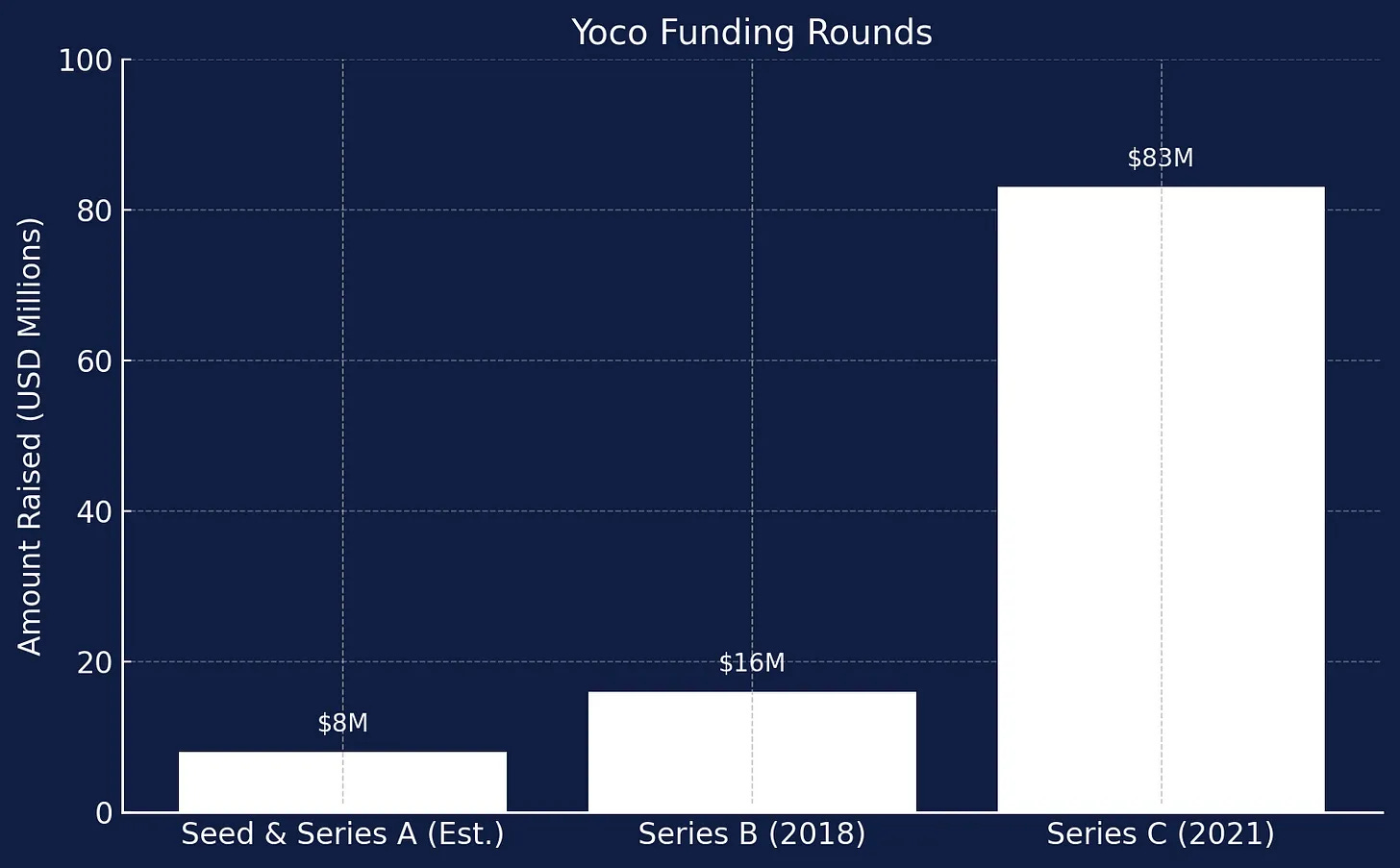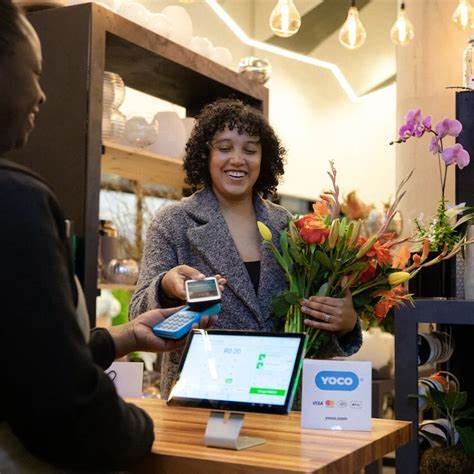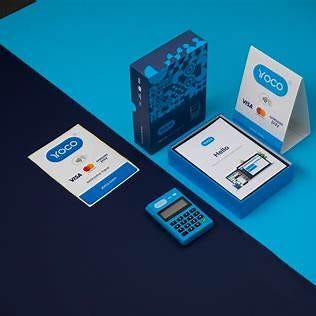22# Case Study: Yoco South African Leading Payment tool
In San Francisco, Katlego Maphai' had an eyeopening moment. Seeing how easily small businesses processed card payments gave him the very business idea he would introduce to South Africa.
Katlego Maphai was having lunch at a small, unassuming barbecue eatery, the kind of "hole in the wall" place you'd expect to be cash-only.
When his friend went to pay, the African American lady running the place pulled out an old Android device with a small, white dongle attached.
She swiped his card, and he signed with his finger.
This simple act was a revelation for Maphai.
He'd seen similar technology before, but in that moment, he truly grasped its potential impact on small businesses.
It sparked the idea of bringing this accessible payment solution to South Africa's underserved small businesses.
When he came back to South Africa, he shared the idea with his three co-founders:
Carl Wazen: Maphai met Carl Wazen, who became Yoco's commercial director, while they were both consultants in the mobile telecom space at Delta Partners.
They even made a pact while on holiday to eventually move to Cape Town and start a venture.
Bradley Wattrus: Maphai met Bradley Wattrus, Yoco's risk and compliance director, while working at Rocket Internet, a German venture capital incubation fund.
Lungisa Matshoba: After his time at Rocket Internet, Maphai approached his childhood friend, Lungisa Matshoba, who became Yoco's technology and product director.
That was the start of Yoco Technologies Proprietary Limited.
POS Device Market Size
The global POS market is experiencing robust growth, driven by increasing cashless and digital payment adoption.
In 2024, the global POS market was valued between USD 32.96 billion and USD 113.38 billion
This variation depends on whether the figure represents the broader POS market or specifically POS terminals.
It is expected to reach USD 234.8 billion by 2033, with a Compound Annual Growth Rate (CAGR) of 15.38% from 2025 to 2033 .
Customers: Early Adopters
Yoco specifically doubled down on cash-based businesses.
Yoco's sales team would go out into the community, engaging directly with business owners.
This allowed them to demonstrate the product and explain the benefits in person to sell to them.
This is how B2B sales teams used to sell before the internet, through cold calls and visiting companies to demonstrate products directly to decision-maker managers.
They also partnered with business associations, forming relationships with those associations, market managers, and entrepreneurial hubs.
These organizations could provide access to their members’ networks and vouch for their solution.
Attracting Investors
Yoco, the South African fintech company, has successfully raised significant funding through several rounds, attracting a diverse range of institutional investors. Here's a historical overview of their key investment rounds:
Seed: ~$8M, with CRE Venture Capital as a significant investor.
Series B (2018): $16M, led by Partech.
Series C (2021): $83M, led by Dragoneer Investment Group.
(Image 5)
The biggest investor in total is Dragoneer Investment Group. They led Yoco’s largest round, the $83 million Series C, which makes up the majority of Yoco’s total funding.
The precise amount Dragoneer provided hasn’t been publicly disclosed.
Profitability
While Yoco has demonstrated significant operational success and market leadership, publicly confirmed information regarding its net profitability is not available.
Like many venture-backed growth companies, their current focus is likely on expanding market share and building out their service offerings.
Focused on Aggressively Scaling
They focused on strategic partnerships and ecosystem building.
Yoco integrated with accounting software (like Xero and QuickBooks) and
e-commerce platforms (like Shopstar), providing merchants with seamless multichannel solutions and access to online sales.
They intensified boots-on-the-ground market penetration, expanding the sales team across the country, reaching beyond their initial city.
Small businesses started sharing the benefits of using Yoco’s products with other business owners, building strong word-of-mouth growth.
All this led the company to serve over 350,000 small businesses in South Africa and process over $2 billion in transactions annually.
Recognizable Branding
Yoco positioned itself as an accessible and simplified payment process.
They were the anti-bank, with no hidden fees and uncomplicated contracts.
Their simple pay-as-you-go model was a huge relief to small businesses, which led clients to perceive it as a business partnership instead of a financial authority.
The company’s visual branding is a masterclass for African entrepreneurs.
The visual consistency, through packaging, marketing, and messaging, made it simple to be recognized with a visual connection.
Logo & brand palette : the refreshed Yoco logo uses bold, electric blue and earthy accents to reflect its African roots and human‑centred mission
Card machine on display : real‑world shots of the POS device being used, highlighting Yoco’s sleek, friendly design
It’s very rare to find an African company with such a clear visual branding cohorcy
Once their clients saw their message, they would remember it. It gave a sense of prosperity and a bright future, which was how they emotionally connected.
They maintained absolute clarity on their target audience.
Yoco explicitly focused on micro and small enterprises, including local restaurants, coffee shops, hair salons, and market vendors.
They aimed to empower these businesses that traditional banks often overlooked, particularly those still heavily reliant on cash transactions.
Yoco Revenue Growth
Though Yoco raised significant money and faces the challenge of catching up with its $700 million valuation, it’s growing steadily and has high potential to make more than $100 million.
Here’s a snapshot of Yoco’s estimated revenue growth over recent years:
In 2021–2022, Yoco’s revenue doubled, from around $20–25 million to $40–50 million.
In 2024, revenue growth in South Africa was approximately 30 percent.
So they’ve had a 100% jump between 2021 and 2022, followed by 30% annual growth in 2024.
Yoco actively serves over 350,000 small businesses in South Africa, ts market share in South Africa's digital payments sector is estimated at a substantial 70%, positioning it as a clear leader.
That is all and see you next week!




